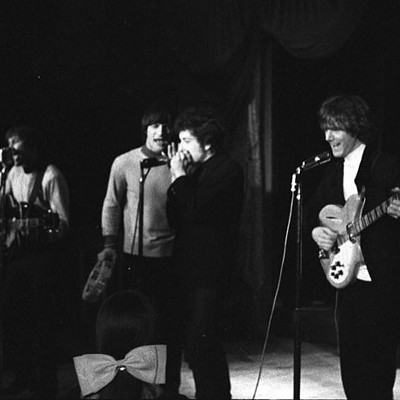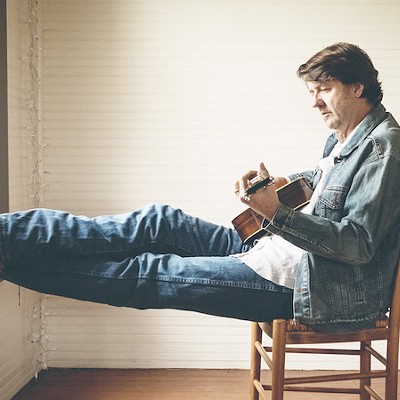The Rise and Fall of the Clash Directed by Danny Garcia Shout! Factory, 90 mins., $13.98
In the interest of truth in titling, the "Rise" in this DVD could have been eliminated, as this rock doc details the ramshackle demise of "the only band that mattered." And to that end, makes for a more interesting dissection on the least-looked at period of the Clash story, the wayward final years.
Director Garcia assumes viewers already know about the band, so (thankfully) eschews regurgitating their origins and development and starts with the Clash at their commercial peak. It was the heady days of 1982 and Combat Rock, the "Rock the Casbah" video, headlining the US Festival and opening stadium shows for the Who. But it was the beginning of the end.
Fearing that the band had gone complacent, and with the sacking of drug-addled drummer Topper Headon -- no trips to rehab or time off for healing in those days -- singer/guitarist Joe Strummer instigated two events that would kill the band.
The first was the reinstatement of controversial but heavily influential manager/Svengali Bernie Rhodes, alternately called "an asshole" and "one of the unsung heroes of music management" by the talking heads on the DVD. The second was the shocking firing of band co-founder and main music-writer Mick Jones.
In their quest for "complete control," Rhodes, PR man Kosmo Vinyl and Strummer (with placid bassist Paul Simonon), sought to restructure the band to its angry roots, adding three new and younger faces to the lineup.
And while the touring did well as fans came to hear the back catalogue, 1985's electronics-soaked Cut the Crap was so dismal it didn't even make the on the Clash career-spanning box set issued last year (though "This Is England" was a band highlight in any era). It was as if the three surviving classic-lineup members wanted it purged from the discography. And then it was over.
Garcia scores something of a coup by getting new interviews with Mick Jones and original (and latter-day) drummer Terry Chimes, along with the usual coterie of friends, fans, music journos and contemporaries. Strummer, Headon and Simonon are seen/heard in previous interviews.
But the real revelatory storytelling here is from those three "substitute" members, drummer Pete Howard and guitarists Vince White and Nick Sheppard. Seemingly decent guys and good musicians thrown into an impossible scenario, they were part of a band on its last legs, one beset by infighting and questions about direction, fashion, music and political posturing.
Howard, White, and Sheppard -- regularly dismissed in Clash bios and DVDS -- are brutal and unsparing in their assessment of both their treatment and unfulfilled wishes for what could have been had it been more of a "real group."
In the contemporary interviews it's White, the punk hired as much for his attitude as his playing, who cuts the most tragic figure. Clearly boozing while he's talking, his emotions run the gamut from wonder to anger to sadness and despair when recalling his memories.
Story continues on the next page.






